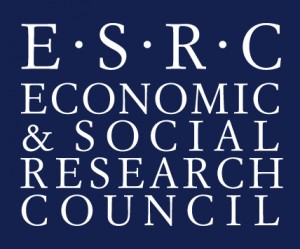


The Nuffield Foundation, the Economic and Social Research Council (ESRC) and the Higher Education Funding Council for England (HEFCE) are launching a £15.5 million funding programme in October 2012 aimed at promoting a step-change in quantitative methods training for UK social science undergraduates.
This 5-year programme will fund the creation of a network of up to 15 Quantitative Methods Centres to develop new approaches aimed at embedding the acquisition and application of quantitative skills to substantive issues in disciplines across the UK social science undergraduate curricula.
Centres will be able to apply for funding of up to £350k per year to develop and deliver a wide range of fundable training activities, including bursaries for students attending holiday courses or in relevant work placements, recruitment of new staff and the development of new courses and pathways to careers requiring skills in quantitative methods.
Centres are expected to be within single Higher Education Institutions, with limited scope for any consortia arrangements. Single departments or groups of departments within an Institution may apply, but only one application per Higher Education Institution will be allowed.
We expect that competition for funds will be intense. Applying Institutions should therefore already have demonstrable expertise in and commitment to developing quantitative skills in the social sciences.
More information about the programme can be found on the Nuffield Foundation website www.nuffieldfoundation.org from October 15th. They will also be holding two launch events in London and Manchester to present this initiative:
Friday 19th October @ 11.00am British Academy, London
Thursday 8th November @ 11.15am Manchester University
If you are interested in applying, they hope that you will be able to attend one of these events. This is an open invitation, but all who wish to attend must register so that they can plan for numbers. Initially, no more than 2 attendees per HEI, but if they have room they would be happy to allow more.
If you would like to attend, please RSVP by e-mail using the attached form to QMEnquiries@nuffieldfoundation.org by Monday 8th October. They will send further information about the events to registered attendees.
RSVP form
 The Leverhulme Trust invites proposals for its research programme grants. Proposals are invited for programme awards on one of the following two topics:
The Leverhulme Trust invites proposals for its research programme grants. Proposals are invited for programme awards on one of the following two topics:




 The Intellectual Property Office (IPO) launched its annual
The Intellectual Property Office (IPO) launched its annual 




















 Second NIHR MIHERC meeting in Bournemouth this week
Second NIHR MIHERC meeting in Bournemouth this week Dr. Ashraf cited on ‘Modest Fashion’ in The Guardian
Dr. Ashraf cited on ‘Modest Fashion’ in The Guardian NIHR-funded research launches website
NIHR-funded research launches website MSCA Postdoctoral Fellowships 2025 Call
MSCA Postdoctoral Fellowships 2025 Call ERC Advanced Grant 2025 Webinar
ERC Advanced Grant 2025 Webinar Horizon Europe Work Programme 2025 Published
Horizon Europe Work Programme 2025 Published Horizon Europe 2025 Work Programme pre-Published
Horizon Europe 2025 Work Programme pre-Published Update on UKRO services
Update on UKRO services European research project exploring use of ‘virtual twins’ to better manage metabolic associated fatty liver disease
European research project exploring use of ‘virtual twins’ to better manage metabolic associated fatty liver disease